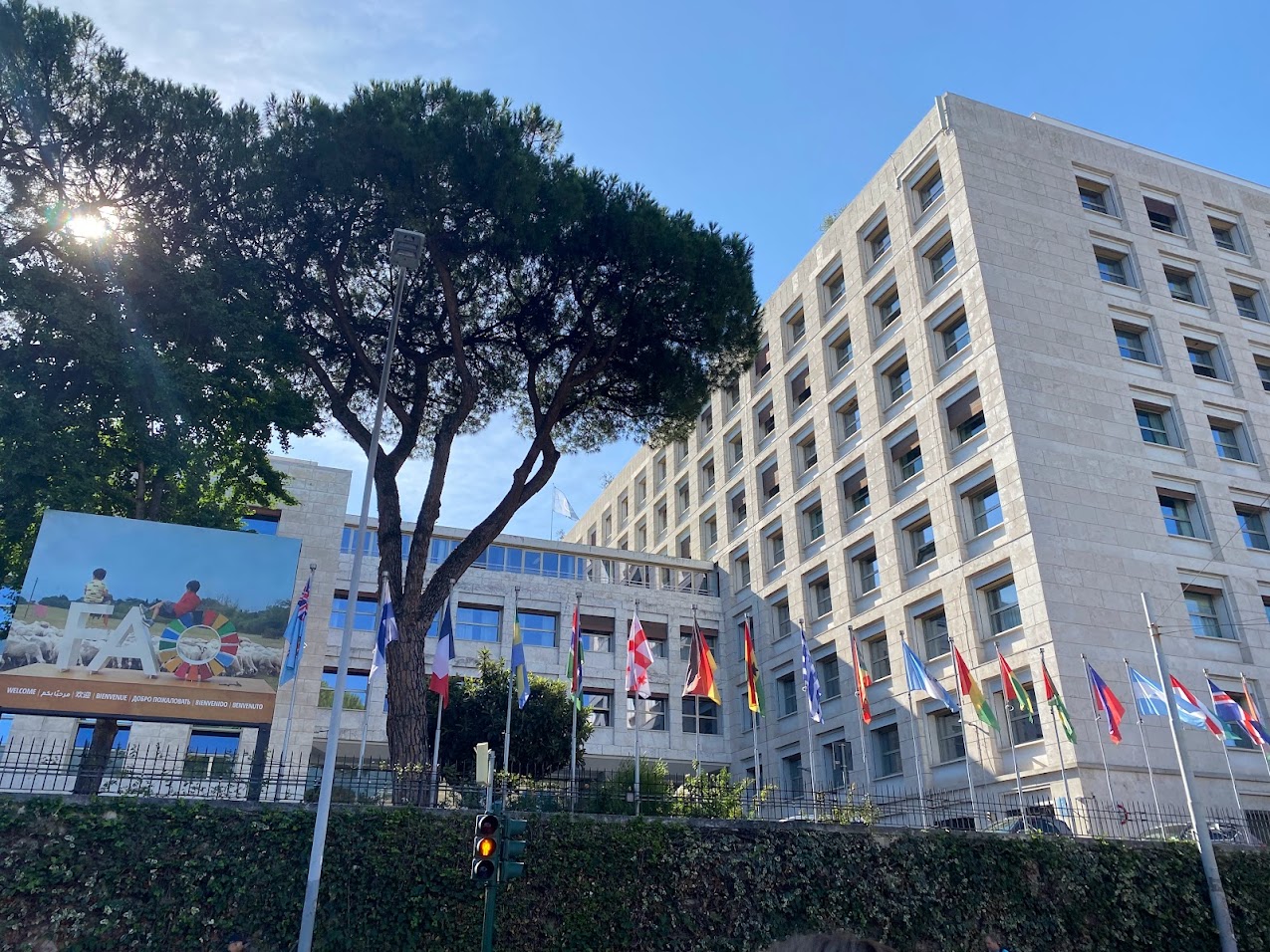2023/09/17
2023 fiscal year marks the launch of the “Globally Important Agricultural Heritage Systems (GIAHS) International Study Program,” a collaborative initiative between Ishikawa Prefecture and UNU-IAS OUIK. The program aims to promote the development of young people with an international perspective through the GIAHS Noto’s Satoyama Satoumi, targeting university students within Ishikawa Prefecture, while also encouraging contributions to the local community.
After the first lecture held in July, a field training session focused on the GIAHS Noto Satoyama Satoumi took place from August 9 to 10. Subsequently, from September 10 to 17, five university students from Ishikawa Prefecture participated in a study trip to Italy. The aim of this visit was to learn about various food-related initiatives by United Nations organizations and to visit GIAHS regions in Italy to study sustainable agriculture practices.
You can view the previous activities of the GIAHS International Study Program below.
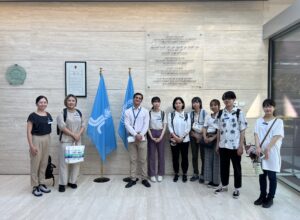
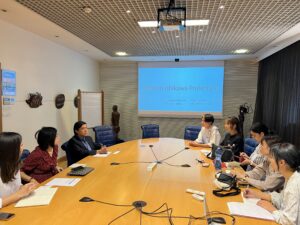
In Rome, the students visited three UN agencies focused on food-related issues: the UN World Food Programme (WFP), the Food and Agriculture Organization (FAO), and the International Fund for Agricultural Development (IFAD). They learned about the global challenges surrounding food and agriculture, as well as the initiatives undertaken by each organization.
At the FAO headquarters, the students presented in English on the GIAHS Noto, using insights gained from their domestic training program. Claria, a program specialist at FAO, remarked on a presentation by a team that researched the next-generation inheritance of the Senmaida rice paddies, saying, “This is very interesting. You should share your proposals using modern technology with the local community.”
Below is a record of the lessons learned during the visits to the headquarters of WFP, FAO, and IFAD.
IFAD (International Fund for Agricultural Development)
At IFAD, the group leaned how the organization helps developing countries, especially in rural areas. After a lecture on efforts to raise funds and build capacity, mainly focused on small-scale farmers and rural communities, they discussed how IFAD improves infrastructure and offers microfinance services to impoverished and low-income people.
A notable emphasis was placed on gender equality as a vital issue for achieving sustainable development in developing countries. IFAD is actively involved in various projects that support women in these regions. Additionally, there are significant challenges facing youth, such as the lack of land as a capital resource. To address this, IFAD is advancing projects aimed at creating employment opportunities and empowering young people.
WFP (World Food Programme)
The World Food Programme operates under the slogan “Saving Lives, Changing Lives,” responding to crises within 72 hours in war zones and disaster areas. They place a strong emphasis on the importance of education through school meal programs, addressing malnutrition, and improving children’s access to education. They recognize that school meals play a crucial role in enhancing learning outcomes and achieving SDG 4, highlighting the importance of collaboration between international organizations and private companies. They also introduced the “Share The Meal” app, which allows individuals to easily contribute to food assistance programs.
FAO (Food and Agriculture Organization)
At the FAO, the group learned about the need for sustainable agricultural practices and innovations to tackle issues related to food. The organization emphasizes the critical role of collaboration with academia, research institutions, and international agencies to address global food challenges. Students gained a deeper understanding of FAO’s efforts to promote environmentally friendly agriculture and ensure access to nutritious food.
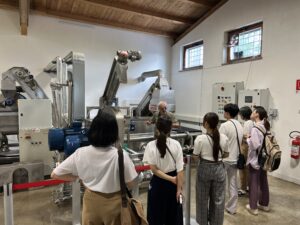
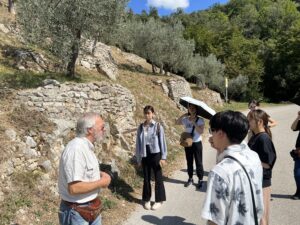
After the visit to Rome, the group spent the latter part of the trip in Umbria, exploring the olive groves located between Assisi and Spoleto, which are recognized as GIAHS sites. They learned about traditional olive farming methods passed down through generations from local farmers. It was fascinating to see how they use the slopes to maximize sunlight and effectively drain rainwater, as well as the traditional stone techniques used to prevent soil erosion. There was also a discussion on the impact of climate change and understood the significance of sustainable olive cultivation.
During an olive oil tasting, the group discovered the diverse flavors of olive oil, influenced by temperature and olive varieties. They had the opportunity to tour an olive oil production facility and visit museums and traditional architecture to know more about the history of olive farming and oil production.
In discussions with local farmers, relevant topics were discussed such as wildlife damage in the region and the declining number of young people in agriculture, which resonates with challenges faced in Noto.
The students are eager to utilize these experiences and their learnings from Noto to advance their research on problem-solving at the Noto GIAHS site as they prepare for their final presentations.


